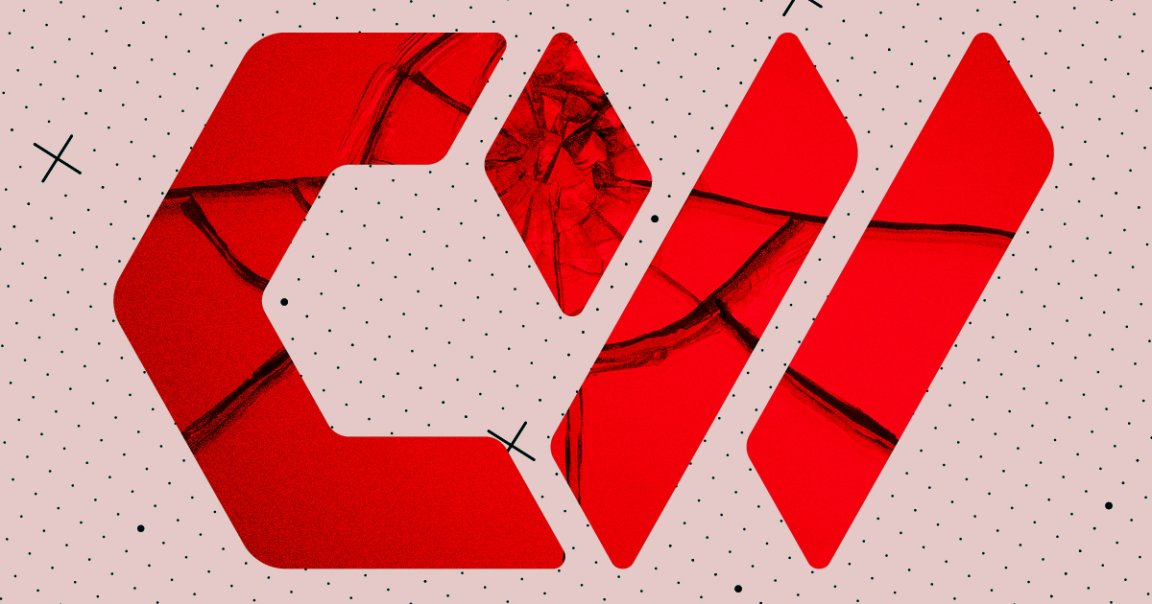
So far, the AI industry has enjoyed smooth sailing. It’s courted billions in slap-happy investments and sign-first, read-later contracts, ballooning some Silicon Valley companies to the top of the financial food chain.
Now it’s facing its toughest challenge yet in the form of CoreWeave, the AI processing company that went public on the stock market this week and the first all-AI startup to do so. It was said to be a major test for the industry — and so far it’s failing, miserably.
CoreWeave stocks hit the public market with a wet thud on Friday, opening at $39, down slightly from its IPO price of $40 per share, which was already reduced from the highest projection of $55 per share the previous week. The company’s hopes of raising $4 billion in the offering thus fell way short at a soggy $1.5 billion.
That flat opening helped spurn a rough day for the Magnificent 7 — the term used to describe Google, Nvidia, Amazon, Tesla, Meta, Apple, and Microsoft — which all tumbled following announcements of Donald Trump’s auto tariffs. Nvidia, the chip giant that’s tried to prop up CoreWeave, saw its stock price fall 1.5 percent on Friday, after a 2.1 percent fall on Thursday. Apple, meanwhile, fell 2.5 percent, while Amazon tumbled 4.5 percent, and Tesla dived 3.7 ahead of worldwide protests aimed at CEO Elon Musk.
Though CoreWeave isn’t entirely to blame for the M7’s terrible rotten day, its failure to instill faith in the tech industry and stave off mounting losses still feels like a big deal.
The company’s entire business model hinges on the mass adoption of generative AI — a resource-intensive technology whose main impact so far has been polluting the internet with computer generated slop. If CoreWeave does well, it would be a major boost for the tech industry, kicking off even more demand for chips and a wave of AI IPOs.
However, if CoreWeave can’t survive despite the massive contracts it has with Microsoft, OpenAI, and Nvidia, then investors will have little reason to trust the generative AI hype going forward — something many have questioned after the Chinese AI company DeepSeek suggested a sustainable alternative to US AI development.
And unfortunately for American AI hopefuls, there’s little reason to think CoreWeave can hold out the next six months, let alone lead the AI revolution.
As tech critic Ed Zitron notes, CoreWeave is a company primed for disaster. Its business is far from stable, relying on those huge revenue injections over sustainable, diversified income. According to the company’s financial filings, 77 percent of CoreWeave’s revenue comes from just two customers — meaning the company could collapse like a house of cards if just one of its clients cancels a contract.
Meanwhile, it has what Zitron calls a “fatal amount of debt” via loans from companies like Blackstone and Magnetar. The interest alone on CoreWeave’s top two loans could be as much as $1.5 billion per year thanks to some high-risk terms, suggesting a lack of faith from the company’s lenders.
All told, it’s a pretty lame showing given all the hype we’ve heard from AI tycoons. The next few months will tell whether they can keep CoreWeave — and the AI industry — afloat as the market grows impatient with empty promises.
More on AI: AI Hype Will Plunge America Into Financial Ruin, Economist Warns